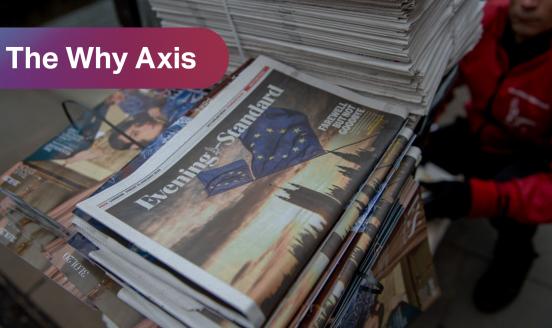European banking needs a state-led triage body
Adam Posen and Nicolas Veron briefly outline the proposal of their policy brief 'A Solution for Europe's Banking problem', that a number of European states should jointly create a trustee to manage the triage, restructuring and resolution processes, which they believe indispensible to heal the European banking system.
The Bank for International Settlements has just announced that national governments have done too little to clean up their banking problems, and it is right. The European Summit concluded that there can be no fiscal federalism to transfer funds between banking systems, were they to require recapitalisation. That is reality. It seems difficult to craft a policy responding to the first while abiding by the second. Yet, all recent systemic banking crises in developed countries (including the US savings and loans, Sweden and Japan in the 1990s) have only been solved when there was a government-led triage process, with state intervention to resolve the cases of insolvency.
Carrying out the needed Europe-wide bank restructuring without fiscal transfers between members is difficult, but not impossible. In A Solution for Europe’s Banking Problem, we propose the creation of a “European Bank Treuhand”, a fiduciary entity or trustee that would be created jointly by those countries where the main continental European banks are headquartered (the UK is a separate case, as most of its banks have only limited operations on the Continent). The Treuhand would have three tasks.
First, it would apply triage to all large or heavily cross-border banks, assess their balance sheets on a truly comparable basis (including stress-testing), publish what it found regarding specific banks simultaneously and thus signal where capital is required and how much. A triage done by national authorities, even on the basis of commonly agreed methodologies, would remain ineffective given the enormous incentives to protect national bank champions, triggering a supervisory race to the bottom. That is the main reason for the non-response of European bank supervisors to date.
Second, it would serve as the catalyst for the intergovernmental negotiations to recapitalise and restructure those financial institutions that are insolvent. Cases such as Fortis in late 2008 have shown that ad hoc burden-sharing agreements are possible, but that they can unravel quickly when there is no trusted player to steer the process, which is what the Treuhand would do. In fact, because it would be dealing with all large or significantly crossborder institutions in continental Europe and releasing the results simultaneously – about 40 in number – there would be a strong incentive for national governments to pick up their share of the burden where they have minority interests, lest they be punished by markets and governments on their majority-owned cases.
None of the existing European Union-level institutions has the mandate and skills needed to achieve such a task, including the soon-to-be-created European Banking Authority, which will take years before acquiring the necessary heft. Importantly, like the US Resolution Trust Corporation or bodies in Sweden and Japan, this would be a temporary institution, to exist long enough to resolve the crisis.
Third, the Treuhand would manage those assets and institutions thus brought into public ownership on behalf of the owning national governments. This would provide the necessary neutrality and professionalism through barriers to politicisation of bank operations. It would also deepen markets for pricing and liquid disposal of assets by extending beyond one country’s remit. Additionally, having a non-national trustee for publicly held banks and bank assets would reduce the risk of either institutions being held too long in the public sector or there being a race to the exits once one state decided to privatise – both risks real and harmful in the absence of European co-ordination.
The Bank Treuhand would have no need for a unanimity requirement, as only some European countries would have to join to make it work. We think the critical mass would include Austria, Belgium, France, Germany, Italy and the Netherlands, plus possibly Spain and Sweden.
The hope that a combination of green shoots and a steeper yield curve will cure European banks’ current ills is dangerous, magical thinking. Waiting does not reduce the need for triage, but only increases the ultimate cost.
Setting up a European Bank Treuhand is the way to unlock policy action, prevented by the competing incentives of national governments. Otherwise, it will be Europe that will risk the repeat of Japan’s lost decade.
The writers are the deputy director of the Peterson Institute for International Economics and a research fellow at Bruegel, respectively.
This op-ed was published in the Financial Times.



